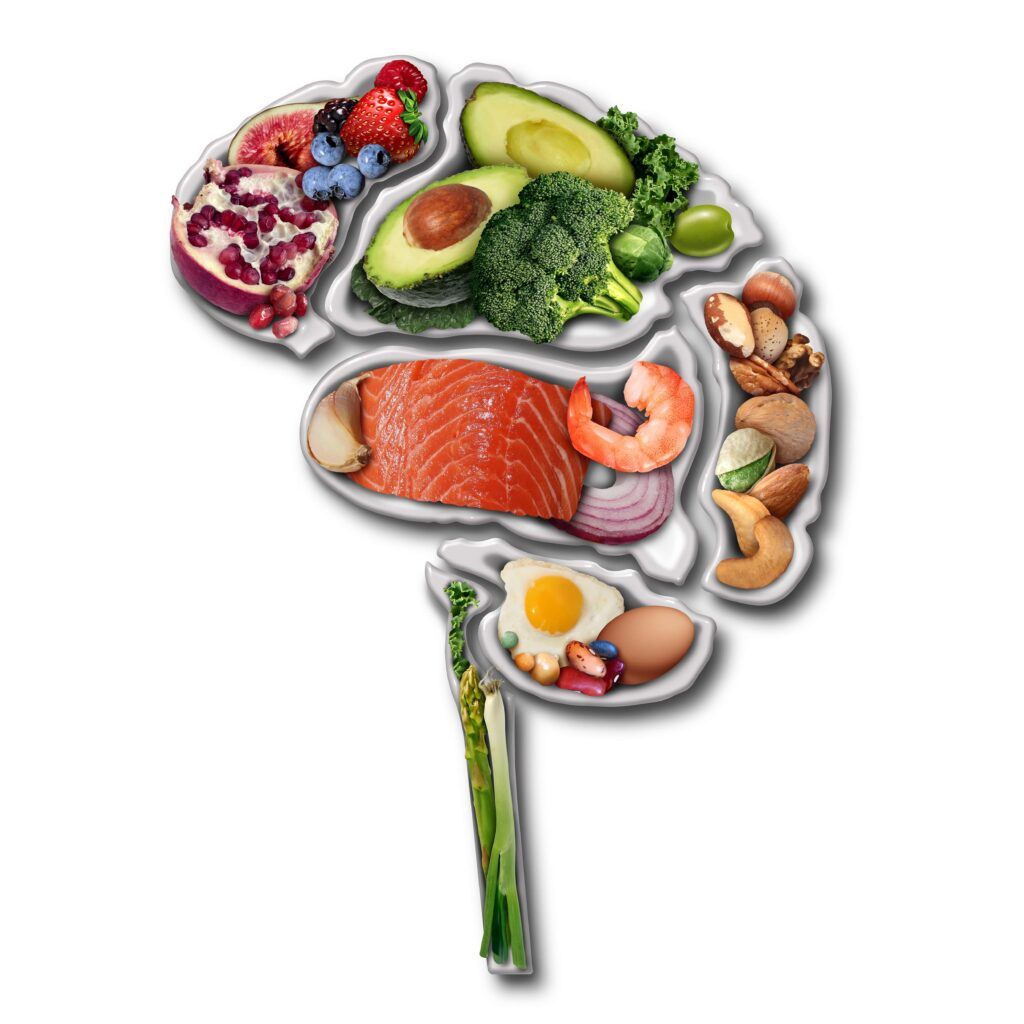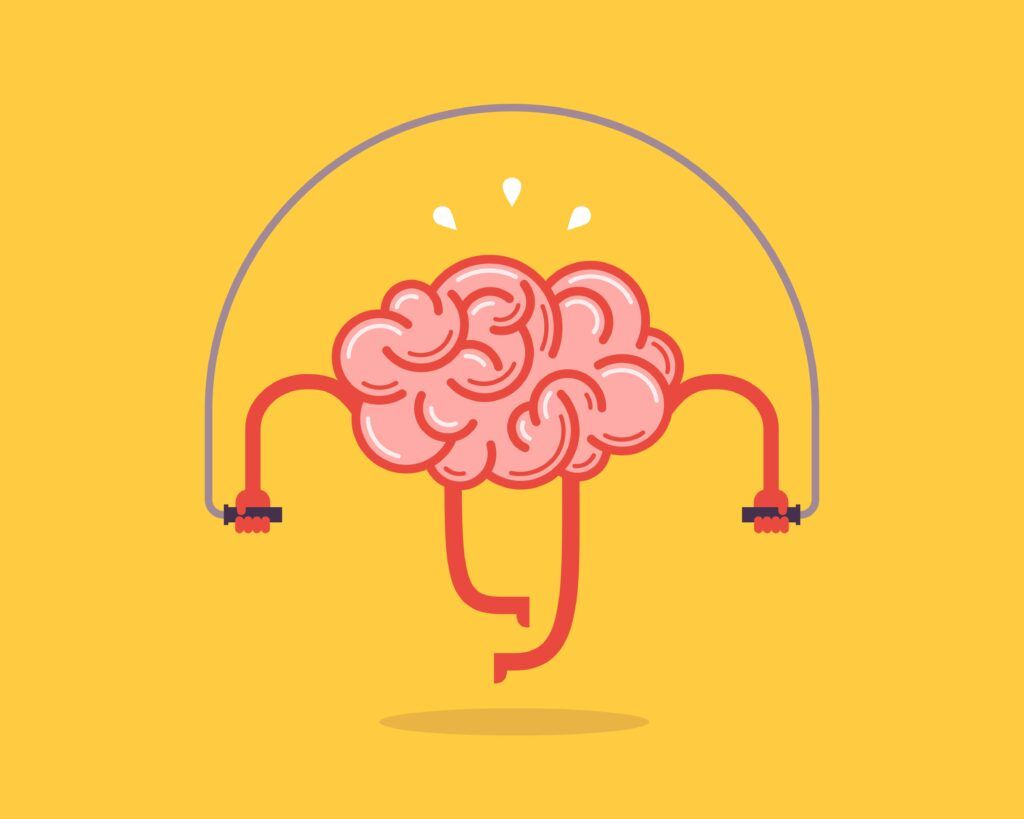The brain, often referred to as the control center of the body, is responsible for a myriad of functions, from regulating our emotions to controlling our movements. As such, maintaining optimal brain health is crucial for overall well-being. Two significant factors that influence brain health are diet and exercise. Let’s delve into how these elements impact our brain’s functionality and longevity.
The Role of Diet in Brain Health
Diet plays a pivotal role in influencing brain health and function. The foods we consume can have both immediate and long-term effects on cognition, mood, and overall brain health. Here’s a comprehensive look at how diet affects the brain:
Nutrient Absorption and Brain Function:
- The brain requires a constant supply of glucose, which is derived from carbohydrates in our diet. Glucose is the primary energy source for the brain.
- Essential fatty acids, especially omega-3s found in fish, flaxseeds, and walnuts, are crucial for brain health. They help build and repair brain cells and are associated with improved cognition and mood.
- Amino acids from protein sources are the building blocks of neurotransmitters, which are essential for transmitting signals in the brain.
Brain Protection:
- Antioxidants found in fruits, vegetables, nuts, and seeds combat oxidative stress, which can damage brain cells. Vitamins C and E, in particular, have been shown to be neuroprotective.
- Polyphenols in foods like berries, tea, and dark chocolate have anti-inflammatory properties and can protect the brain from damage.

Gut-Brain Axis:
The gut and brain are intricately connected. A healthy gut microbiome, influenced by a diet rich in fiber, fermented foods, and diverse plant-based foods, can benefit brain health. An imbalance in gut bacteria can lead to increased permeability of the gut wall (leaky gut), which may contribute to neuroinflammation and mood disorders.
Mood and Mental Health:
- Certain nutrients, like tryptophan found in turkey and bananas, are precursors to neurotransmitters such as serotonin, which regulates mood.
- Diets high in refined sugars and unhealthy fats can lead to imbalances in neurotransmitters, contributing to mood disorders like depression and anxiety.
Cognitive Decline and Neurodegenerative Diseases:
- Diets high in saturated fats and sugars can increase the risk of cognitive decline and neurodegenerative diseases like Alzheimer’s.
- On the other hand, diets like the Mediterranean diet, rich in fish, whole grains, and vegetables, have been associated with a reduced risk of cognitive decline.
Brain Development in Children:
- Essential fatty acids, especially DHA, are crucial for brain development in infants and children.
- Iron, zinc, and protein are also vital for the developing brain.
Brain Inflammation:
- Diets high in processed foods, sugars, and unhealthy fats can lead to systemic inflammation, which can also manifest in the brain. Chronic brain inflammation is linked to depression, cognitive decline, and other brain disorders.
- Foods rich in anti-inflammatory compounds, like turmeric, green tea, and berries, can help reduce brain inflammation.
Blood Flow and Brain Health:
Certain nutrients, like flavonoids found in dark chocolate and berries, can enhance blood flow to the brain, ensuring a steady supply of oxygen and nutrients.
Overall, diet has a profound impact on brain health, influencing everything from mood and cognition to the risk of neurodegenerative diseases. Consuming a balanced, nutrient-rich diet can support optimal brain function and protect against various brain-related issues.
The Influence of Exercise on Brain Health
Exercise has a profound impact on the brain, influencing its structure, function, and overall health. Engaging in regular physical activity can lead to a range of cognitive, emotional, and physiological benefits. Here’s a detailed look at how exercise affects the brain:
Neuroplasticity and Brain Growth:
- Exercise stimulates the production of brain-derived neurotrophic factor (BDNF), a protein that supports the growth, survival, and differentiation of neurons. BDNF enhances neuroplasticity, which is the brain’s ability to reorganize and form new neural connections.
- Physical activity also promotes the growth of new neurons, especially in the hippocampus, a region vital for learning and memory.
Improved Cognition and Memory:
- Regular exercise has been shown to improve cognitive function, including attention, processing speed, and executive function.
- Exercise can enhance both short-term and long-term memory.

Mood Regulation and Mental Health:
- Physical activity releases endorphins, which are natural mood lifters. This “runner’s high” can lead to feelings of euphoria and well-being.
- Exercise also helps regulate neurotransmitters like serotonin, dopamine, and norepinephrine, which play crucial roles in mood and emotional stability.
- Regular physical activity has been shown to reduce symptoms of depression and anxiety and can be an effective adjunct therapy for these conditions.
Stress Reduction:
- Exercise reduces levels of the body’s stress hormones, such as cortisol and adrenaline.
- Physical activity also stimulates the production of endocannabinoids, which are natural compounds in the body that help induce feelings of calm and well-being.
Protection Against Neurodegenerative Diseases:
- Regular exercise has been associated with a reduced risk of developing neurodegenerative diseases like Alzheimer’s and Parkinson’s.
- Physical activity can also slow the progression of cognitive decline in individuals with these conditions.
Enhanced Blood Flow:
Exercise increases blood flow to the brain, ensuring a steady supply of oxygen and essential nutrients. This increased circulation supports optimal brain function and health.
Reduced Inflammation:
Chronic inflammation is linked to various brain disorders, including depression and dementia. Exercise has anti-inflammatory effects, which can benefit brain health.
Improved Sleep:
Regular physical activity can enhance sleep quality and duration. Since sleep is vital for memory consolidation and cognitive function, exercise indirectly supports these processes.
Increased Resilience to Brain Injury:
Exercise can increase the brain’s resilience to injuries and can accelerate recovery after a traumatic brain injury.
Enhanced Creativity:
Some studies suggest that exercise, especially aerobic activities, can boost creativity and divergent thinking.
Overall, exercise offers multifaceted benefits for the brain, from enhancing cognitive function and mood to protecting against age-related decline and neurodegenerative diseases. Incorporating regular physical activity into one’s routine can be one of the most effective strategies for maintaining and improving brain health throughout life.
In Conclusion
Our brain’s health is intricately linked to our lifestyle choices. By prioritizing a balanced diet and regular exercise, we not only benefit our physical health but also ensure our brain remains sharp, agile, and resilient. As research continues to unveil the profound impact of diet and exercise on the brain, it becomes clear that these are two of the most potent tools we have to enhance cognitive function and mental well-being.

Dr. Kashouty, a diplomate of the American Board of Psychiatry and Neurology (ABPN), practices general neurology with fellowship trained specialization in clinical neurophysiology. Dr. Kashouty finds the form and function of the nerves and muscles the most interesting part of neurology, which is what led him to specialize in neurophysiology with more emphasis on neuromuscular conditions. He treats all neurological diseases, but his main focus is to treat and manage headaches, movement disorders and neuromuscular diseases.




